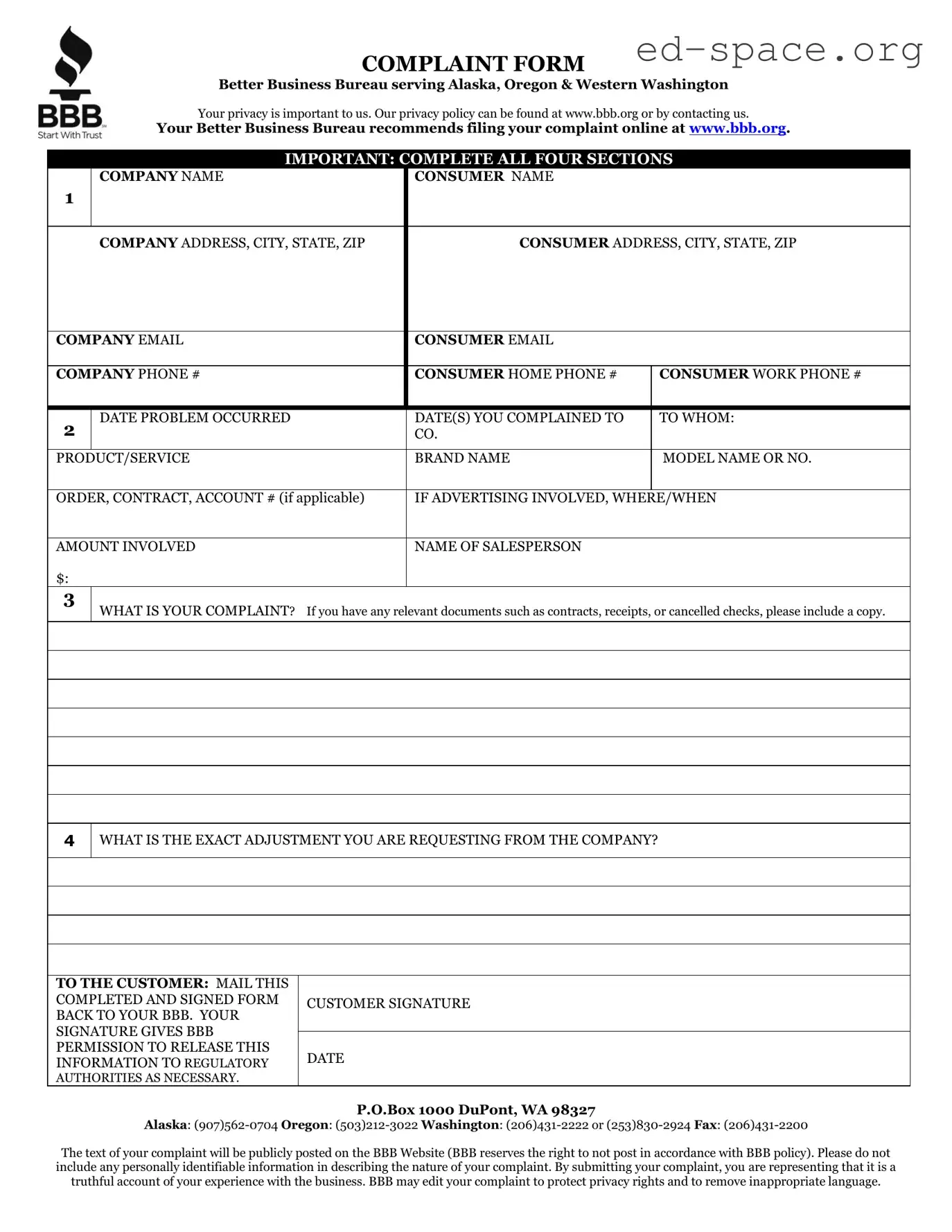What is the BBB Complaint Form?
The BBB Complaint Form is a document provided by the Better Business Bureau (BBB) to allow consumers to submit complaints about businesses. The form is designed to facilitate communication between consumers and businesses to resolve disputes related to products or services.
How does the BBB Complaint Form process work?
Once a complaint is submitted via the BBB Complaint Form, the BBB will review it to ensure it meets their criteria. If accepted, the complaint is forwarded to the business in question, offering them an opportunity to respond. Throughout the process, the BBB acts as a mediator, facilitating communication between both parties in the hope of reaching a satisfactory resolution.
What types of complaints can be filed with the BBB?
Complaints that relate to marketplace transactions can be filed. This includes issues with the sale of products, services, customer service, warranty, billing, and contracts. Complaints often concern dissatisfaction with a product or service, misrepresentation, or lack of after-sales support.
Is there a fee to file a complaint with the BBB?
No, consumers can file a complaint with the Better Business Bureau free of charge. The BBB's services are provided at no cost to the consumer as part of their mission to foster a trustworthy marketplace.
How long does it take to resolve a complaint?
The time it takes to resolve a complaint can vary widely. Factors including the complexity of the complaint, the responsiveness of the business, and the availability of necessary information can all influence the timeline. Typically, businesses are given a set period to respond after which the BBB will follow up to ensure the process is progressing.
Can I file a complaint against any business?
Yes, you can file a complaint against any business, regardless of its size or whether it is a BBB-accredited business. The BBB accepts complaints about businesses that are not members of the BBB as part of their aim to cover all aspects of the marketplace.
What happens if a business does not respond to my complaint?
If a business does not respond to your complaint, the BBB will note this in the business's record. Lack of response can adversely affect the business’s BBB rating. While the BBB cannot enforce action, public records of complaints and responses (or lack thereof) can influence other consumers’ perceptions and decisions.
Can I file a complaint anonymously?
No, you cannot file a complaint anonymously. The BBB requires your contact information to process the complaint and facilitate communication between you and the business. However, your personal information is protected and is not shared with the public.
What should I include in my complaint?
Your complaint should include a clear and concise description of the issue, including what happened, when it happened, and your desired outcome or resolution. Providing relevant documents, such as receipts, contracts, or correspondence, can also help substantiate your complaint.
Can the BBB issue refunds or force a business to take action?
No, the BBB cannot issue refunds or legally force businesses to take action. Their role is to facilitate communication and encourage voluntary resolution of disputes. The outcome of a complaint often depends on the business's willingness to address the issue.

